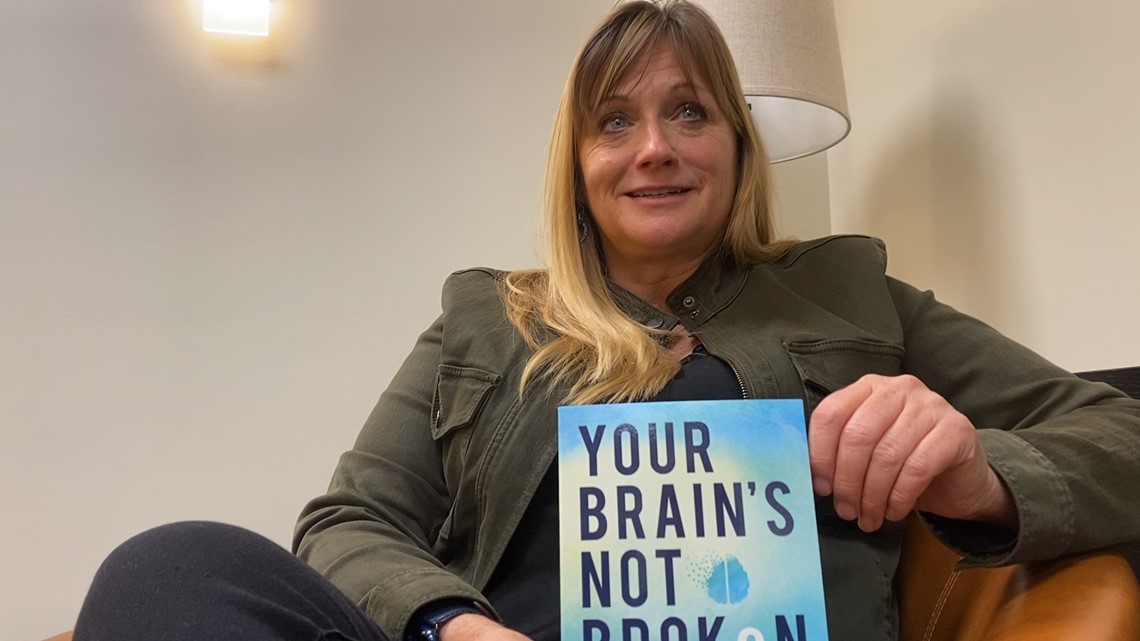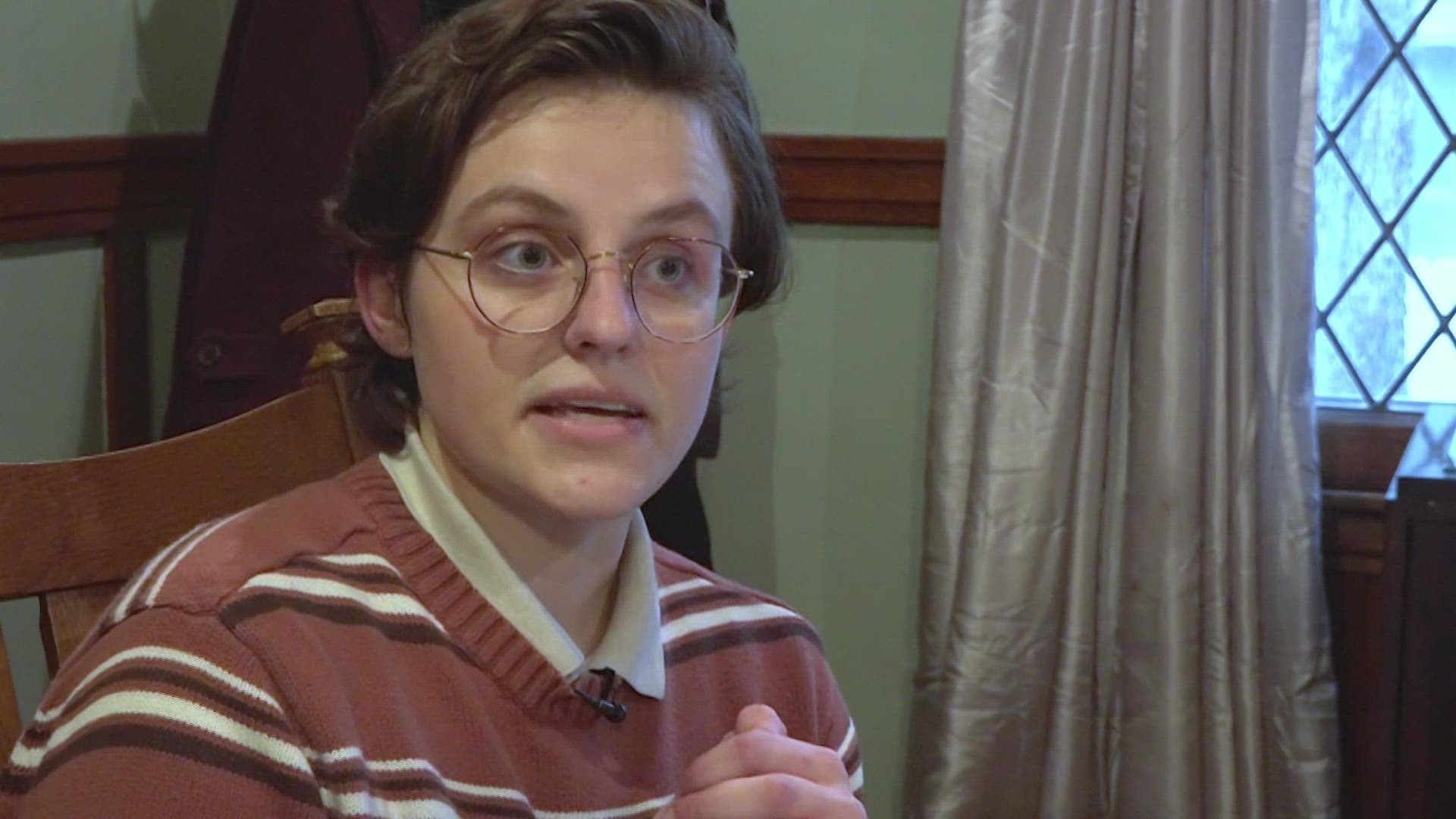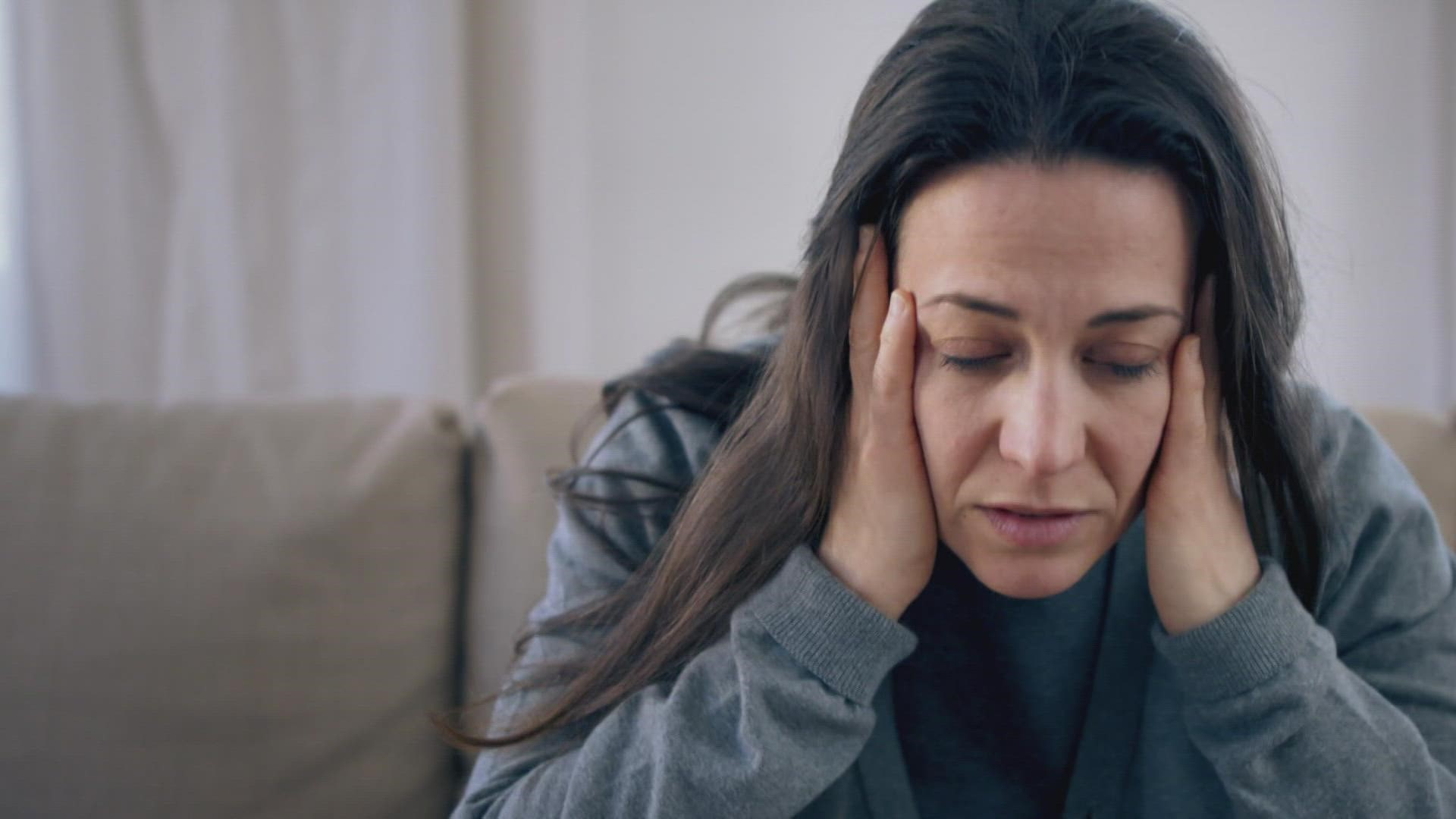GRAND RAPIDS, Mich. — More than 9% of the population will be diagnosed with Attention-Deficit/Hyperactivity Disorder (ADHD) during their lifetime, and nearly 3% of those are women. But experts say many women will still go undiagnosed.
Why is that? And how does ADHD affect women differently than men?
"It is an actual diagnosis, and something that does affect your life," said 22-year-old Isabelle Fleszar, a Lowell graduate and current Central Michigan University student, "and there's no shame in having it."
According to the CDC, ADHD is one of the most common mental health disorders in today's world. Symptoms can include having trouble paying attention, impulsive behaviors or being overly active.
Although usually diagnosed in childhood, many adults live with it, too, like Fleszar.
"It's lonely, you're always feeling like you're forgetting something and you're constantly anxious," she said.
Fleszar wasn't diagnosed until a year ago. She always felt like she was different, but after two decades in the dark, she feels liberated in understanding herself.
Her diagnosis drew her to study psychology at CMU because she wants to help others realize they're not alone.
"Not only did I feel seen, I just didn't feel alone anymore," Fleszar said. "A lot of feelings of inadequacy came from not understanding that I had this disorder."
Part of Isabelle's journey was at the ADHD Center of West Michigan, located off the East Beltline near 28th Street.
It's a counseling center that was founded by Tamara Rosier, PhD., a woman who lives with the disorder herself.
"Those of us with ADHD just get so frustrated with not doing things well," said Dr. Rosier. "You feel perpetually behind, and that there's more to do than can ever be done, and it can be exhausting."
Dr. Rosier explained that there are three main types of ADHD.
"Inattentive, which is more the internally hyperactive. Externally hyperactive, which are the people that are constantly moving, and you see these people, they're moving all the time. And then there's the combination of the two," she said.
Dr. Rosier explained that ADHD is truly a neurological disorder.
"We don't have reliable access to the front part of our brain," she said. "It's called the prefrontal cortex."
The prefrontal cortex is what controls planning, emotional regulation and motivation. Dr. Rosier said with ADHD, it's harder to access those core feelings.
"Women especially have a difficult time with this, because they'll turn to shame and self-loathing very quickly," she explained.
She added that women with ADHD are more prone to eating disorders, obesity, low self-esteem, depression and anxiety.
"They can have relationship issues, and tend to be emotionally a little bit more volatile toward themselves," she said, "so they grow up feeling not as good as, or not as accomplished as their peers, always just one step behind everyone else."
ADHD is hereditary, so it is extremely common to see it manifest within families. Dr. Rosier said, though, that women don't always want to admit they have it, or they think it's just anxiety.
"The problem is that your anxiety was there because of the ADHD," she explained.
Dr. Rosier said women with ADHD are often coined "chatty Cathy" or "too talkative," but they can also be the shy, smart, disorganized person you know too.
"It's easy to spot the hyperactive ones," she said, "but it's the quiet, inattentive ones who are just taking all those emotions and shoving them down."
And for women, Dr. Rosier said she too often sees that they are afraid to ask for treatment for fear of looking like a "drug-seeker."
"Women 'looking' guilty about asking for medication is a deep concern," Rosier explained, "which makes diagnosis very tough, and it's why women go under-represented in their assessment and treatment for ADHD."
Dr. Rosier said she knows the feelings of isolation all too well, which is why she's spent her career helping men and women cope with ADHD. And just this year, she released her first book that has made international headlines.


"There is something wrong, but it's not so wrong that we're broken," she said, "which is why I titled my book, 'Your Brain Is Not Broken.'"
Dr. Rosier's book dives deep into the world of ADHD for both patients and their families. She wants people to know they aren't alone, they're not crazy and they're certainly not broken.
"There's so many people with ADHD just so frustrated and living life thinking they are so bad at doing even the smallest, most mundane tasks," she said.
And for Isabelle Fleszar, she feels like she is now able to address those intrusive questions just by knowing her diagnosis.
"Because at the end of the day, you have to be able to separate yourself from ADHD," said Flezsar. "To be able to recognize, okay, that's my disorder, that's not who I am. The real me knows that I'm trying to work with this, and even though it gets hard sometimes, it's always better to try than to not."
You can learn more about the ADHD Center of West Michigan, Dr. Tamara Rosier and her book, "Your Brain Is Not Broken", by clicking here.
For more information about ADHD, visit the CDC's website by clicking here.
Related video:
►Make it easy to keep up to date with more stories like this. Download the 13 ON YOUR SIDE app now.
Have a news tip? Email news@13onyourside.com, visit our Facebook page or Twitter. Subscribe to our YouTube channel.


